Description
ABSTRACT
Labour Outsourcing and Contract Staffing: Analysing the Liabilities of Labour Contractors and End Users under Nigerian Law
Edafe Ugbeta* and Morris Odeh**
This article discusses the liabilities of labour contractors and end users in outsourcing and contract staffing arrangements in Nigeria. In particular, the article examines the emerging jurisprudence of the National Industrial Court of Nigeria (NICN) with regard to the obligations and liabilities of labour contractors and end users to contract employees under Nigerian law. In this connection, certain terminologies such as “co-employer” and “triangular employment” which the NICN has introduced into the employment landscape in Nigeria are identified and analysed by highlighting specific cases from its case-law where these terminologies have been employed. In conclusion, the article recommends the use of legal and employment experts when drafting legal documents that will govern an outsourcing arrangement.
Keywords: Labour, Outsourcing, Contract Staffing, Co-employer, Triangular Employment, NICN.
INTRODUCTION
It is common in Nigeria, particularly in the banking and oil and gas sectors, to see labour contractors recruit workers and deploy them to third parties in furtherance of labour supply agreements. This practice, which appears to be recognised globally, creates a ternary labour relationship between the labour contractor, the end user, and the employee who is usually referred to as a contract staff. Sometimes, the practice is justified, considering the short duration of certain projects and their technical nature. In other instances, for purposes of efficiency and proper management, end users prefer to outsource some aspects of their workforce to labour providers instead of engaging permanent employees. Common examples can be found in the security, data protection1 and IT departments of many companies. But, in some other instances, the purpose of the trilateral arrangement is to mask the identity of the real employer, by designating an intermediary as the employer, in order to insulate the end user from certain statutory employment obligations such as pension, health insurance, employee’s compensation, and severance packages.2
Although it has been decades now since this trend emerged in Nigeria, there is no legislation till date that sets out the obligations and liabilities of the respective parties. The Labour Act,3
* LL.B, BL, LL.M. Senior Associate at Aluko & Oyebode, a top-tier commercial law firm in Nigeria and a member of the firm’s Dispute Resolution Practice.
** LL.B, BL. Associate at Aluko & Oyebode, a top-tier commercial law firm in Nigeria and a member of the firm’s Dispute Resolution Practice where he has advised several companies on legal issues relating to employment and labour in Nigeria.
- Nigeria Data Protection Regulation 2019, Regulation 3.1.2.
- See International Labour Organisation, The Scope of the Employment Relationship Report (91st Session Conference (Report V), ILO Office Geneva 2003) 25, 37-39 accessed 12 August 2020.
- Labour Act, Cap L1 LFN 2004, s 91(1).

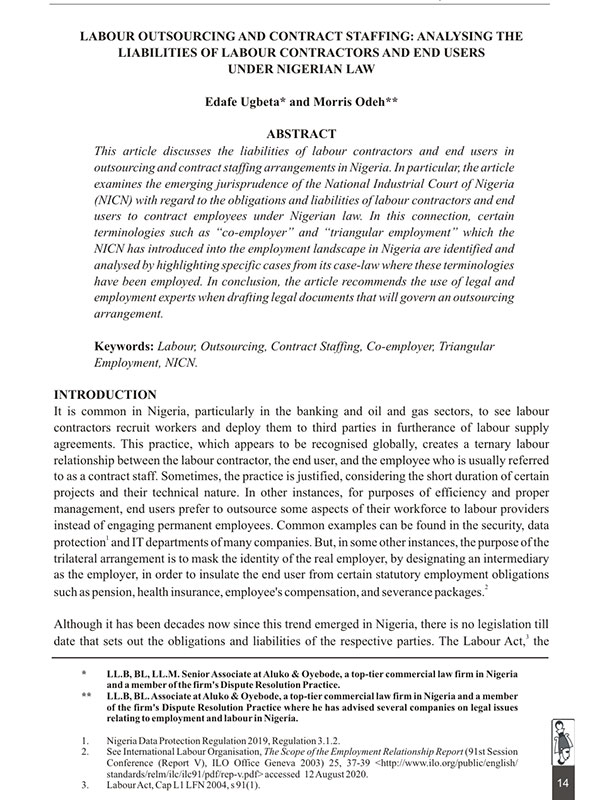
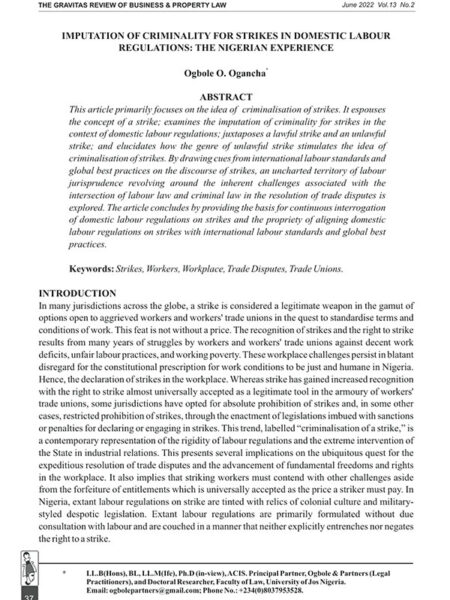
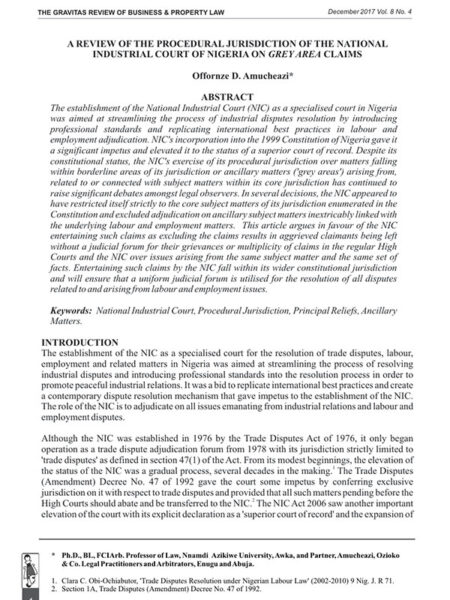
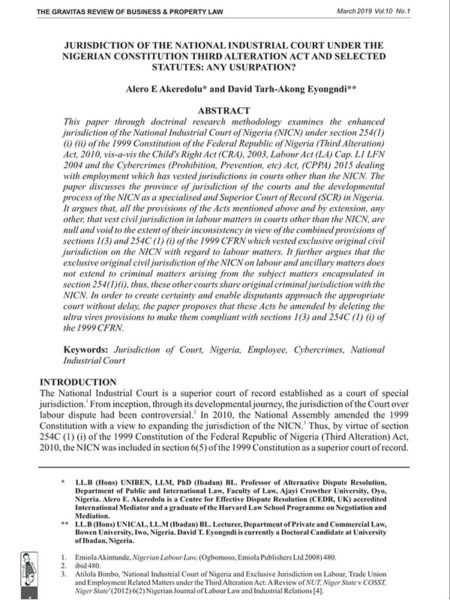
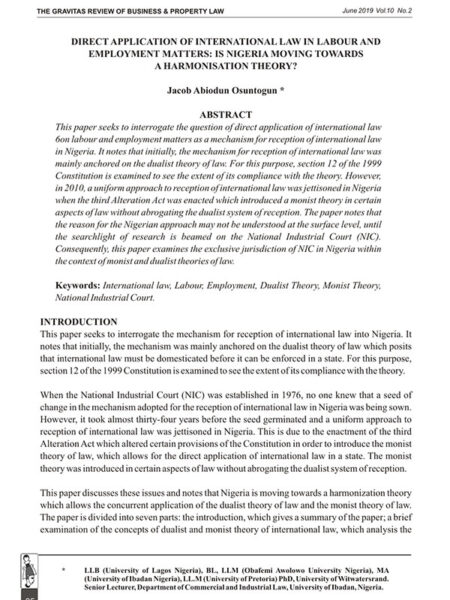


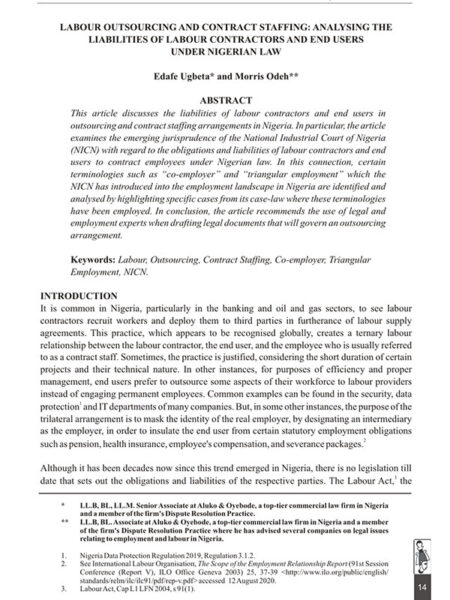
Reviews
There are no reviews yet.